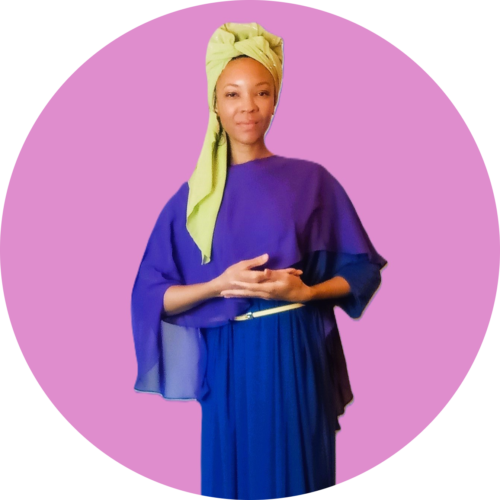
Ladies… So, you’re feeling the call to be a healer. You’ve got this inner desire to help others, to bring light into their lives, and to be a guiding force in their journey towards wellness and self-discovery. But there’s a tiny hitch, isn’t there? You’re feeling blocked, insecure, and unsure about telling people that you’re a healer. Don’t worry. We got cha, girl! Today, we’re talking about how to say you’re a healer — and be okay with it.
Many female aspiring healers go through this phase. It’s a blend of excitement and fear, and figuring out how to say you’re a healer can feel like an insurmountable task. But fear not, because this article is all about helping you find your voice, your confidence, and your unique way of stepping into your role as a healer.
Understanding the Block: Why It’s Hard to Say You’re a Healer
 First things first, let’s acknowledge the elephant in the room. Why is it so darn hard to say you’re a healer? The answer lies in a mix of societal expectations, personal insecurities, and the weight of the responsibility you feel. Society has certain norms and sometimes looks skeptically at unconventional roles like healers. This can make you hesitant and unsure about how to present yourself.
First things first, let’s acknowledge the elephant in the room. Why is it so darn hard to say you’re a healer? The answer lies in a mix of societal expectations, personal insecurities, and the weight of the responsibility you feel. Society has certain norms and sometimes looks skeptically at unconventional roles like healers. This can make you hesitant and unsure about how to present yourself.
Then, there’s the internal struggle. You might feel like you’re not experienced enough or that you haven’t ‘earned’ the title of a healer. Imposter syndrome is real, and it can be a significant barrier. But remember, every healer starts somewhere, and your journey is just as valid as anyone else’s.
How to Say You’re a Healer: Embrace Your Authenticity
One of the first steps in learning how to say you’re a healer is embracing your authenticity. People are drawn to genuine energy. When you speak from the heart, it resonates more deeply with others. Start by acknowledging your unique gifts and the experiences that have led you to this path. Reflect on the moments that confirmed your calling and let those experiences fuel your confidence.
When someone asks about what you do, you don’t have to give a rehearsed, formal answer. Instead, share your story. For example, you might say, “I’ve always been passionate about helping others find balance and peace in their lives, and that’s what led me to become a healer.” This approach feels natural and authentic, making it easier for you and more relatable for the person you’re speaking to.
How to Say You’re a Healer: Find Your Community

Finding and engaging with a community of like-minded individuals can do wonders for your confidence. There’s something incredibly empowering about connecting with others who understand and share your journey.
Join local or online groups of healers, attend workshops, and participate in healing circles. These spaces are safe havens where you can practice how to say you’re a healer without fear of judgment.
In these communities, you’ll find mentors and peers who can offer guidance, support, and encouragement. You’ll see that everyone has their own style and way of presenting themselves as a healer, which can inspire you to find what feels right for you. Plus, hearing others’ stories and struggles can make you feel less alone in your journey.
How to Say You’re a Healer: Develop a Simple, Clear Explanation
When you’re first starting out, having a simple, clear explanation of what you do can be incredibly helpful. This doesn’t mean you need to box yourself into a rigid definition, but having a concise way to articulate your work can make conversations easier.
You might say something like, “I help people heal through energy work and holistic practices,” or “I support others in their journey to wellness through mindfulness and healing techniques.” The key is to keep it straightforward and open enough to allow for further questions. This way, you’re inviting curiosity rather than overwhelming someone with too much information all at once
Overcoming Insecurities: You Are Enough
Insecurities often stem from the belief that we’re not enough. As a female aspiring healer, you might feel like you need more training, more experience, or more validation. But here’s a little secret: you are enough. Your desire to help and your commitment to your path are powerful.
Start by affirming your worth and the value of your work. Remind yourself daily of the positive impact you have on others, no matter how small it may seem. Celebrate your successes, and learn from your challenges. Every step you take is a step closer to becoming the healer you aspire to be.
How to Say You’re a Healer: Practice Makes Perfect
Like anything else, getting comfortable with saying you’re a healer takes practice. Start by saying it to yourself in the mirror. Then, share it with close friends or family members who you know will be supportive. The more you say it, the more natural it will feel.
You can also practice in scenarios where the stakes are low. For example, if you’re at a social gathering and someone asks what you do, use it as an opportunity to say, “I’m a healer.” Notice how it feels, and pay attention to the reactions. Over time, you’ll build confidence and find the words that feel most authentic to you.
How to Say You’re a Healer: Leverage Social Media
Social media can be a great platform for expressing your identity as a healer. It allows you to share your journey, insights, and experiences with a broader audience. Start by creating posts about your healing practice, sharing quotes, or talking about the modalities you use. This not only helps you practice how to say you’re a healer but also connects you with others who might benefit from your work.
Engage with other healers online, participate in discussions, and don’t be afraid to share your thoughts and experiences. The more you put yourself out there, the more confident you’ll become in your role.
How to Say You’re a Healer: Dealing with Skepticism
Let’s face it, not everyone will understand or accept what you do, and that’s okay. Dealing with skepticism is part of the journey. The key is to stay grounded and not take it personally. Remember that everyone is on their own path, and not everyone will resonate with your work.
When faced with skepticism, approach it with curiosity and openness. You might say something like, “I understand that it’s not something everyone is familiar with, but I’ve found it to be incredibly transformative in my own life and for others I’ve worked with.” This response acknowledges their viewpoint while staying true to your own experience.
How to Say You’re a Healer: Continuous Learning and Growth
As a healer, your journey is one of continuous learning and growth. The more you expand your knowledge and skills, the more confident you’ll feel. Take courses, read books, and learn from other healers. Every bit of knowledge you gain reinforces your ability to help others and solidifies your identity as a healer.
Remember that being a healer is not about having all the answers. It’s about being a conduit for healing and growth. Embrace the learning process, and let it enhance your practice.
How to Say You’re a Healer: Self-Care is Crucial
Being a healer means you’re often focused on others, but it’s crucial to take care of yourself too. Self-care is not just a buzzword. It’s a vital part of your practice. When you’re well-rested, balanced, and in tune with your own needs, you’re in a better position to help others.
Make self-care a non-negotiable part of your routine. This could be through meditation, exercise, spending time in nature, or any activity that replenishes your energy. When you prioritize your well-being, you’re setting a powerful example for those you help.
How to Say You’re a Healer: Trust the Process
Lastly, trust the process. Your journey as a healer will have its ups and downs, but every experience is a valuable part of your growth. Trust that you’re on the right path and that you have the strength and wisdom to overcome any challenges.
Stay connected to your purpose and let your passion for healing guide you. The more you trust yourself and the journey, the easier it will become to say you’re a healer with confidence and pride.
Wrapping Up: How to Say You’re a Healer
Embracing your identity as a healer is a powerful and transformative journey. It’s natural to feel blocked, insecure, and unsure at times, but remember that you are enough. By embracing your authenticity, finding your community, developing a clear explanation of what you do, and practicing self-care, you’ll find the confidence to say you’re a healer.
Keep learning, growing, and trusting the process. Your unique gifts are needed in this world, and the more you step into your role, the more you’ll inspire and help others. So go ahead, take a deep breath, and confidently tell the world, “I am a healer.”
___________________________________________________________________________________________________________________________________________________________________________________________
Book a Coaching Session: Boost Your Confidence as a Healer
![]() Ready to amplify your voice as a healer and find your clients? Reach out to Business Coach and Energy Healer, Sarah Israel for a strategy session on how to startup or expand your or healing practice. My rates start at $188 for a 1-hour session. High-value packages are also available for long-term coaching services. See a list of business coaching benefits, here.
Ready to amplify your voice as a healer and find your clients? Reach out to Business Coach and Energy Healer, Sarah Israel for a strategy session on how to startup or expand your or healing practice. My rates start at $188 for a 1-hour session. High-value packages are also available for long-term coaching services. See a list of business coaching benefits, here.
Or get started by sending a quick message to: coach@meditationswithsarah.com
___________________________________________________________________________________________________________________________________________________________________________________________
In her more than 20-year dynamic business background, Sarah has dominated various industries from bridal, to ecommerce, to marketing and real estate — launching extremely lucrative startups both in the United States and globally. Sarah Israel has gained celebrated mastery in sales as well as client retention strategies. Mrs. Sarah Israel is highly sought-after for her impressive cache of wisdom and knowledge in many domains.







